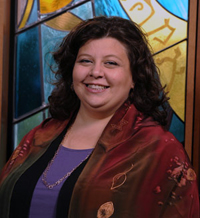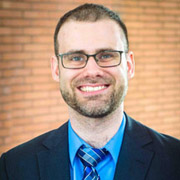By Donald H. Harrison


SAN DIEGO — Perhaps it is my bias, but sometimes I think that rabbis should often talk about the lessons drawn from their own lives and not only about the morals we should glean from the legends of such rabbis of old as Shammai, Hillel, and Tarfon. This is not to denigrate the tried and true tales found in the Talmud or any other of the classical Jewish sources. However, I think contemporary Jews also like to hear from the rabbis about the here and now. It’s for this reason that I very much enjoy reading the bulletin of Temple Emanu-El, although I belong to another congregation (Tifereth israel)
In the most recent issue of Ha Sofer (The Scribe), Senior Rabbi Devorah Marcus, whose warm personality makes her a favorite of adults and kids alike, reflected on her tenth year anniversary of being a rabbi – -her “rabbiversary” as she called it, and on her ten years of marriage to husband Sebastian.
“Being a rabbi of a congregation is very much like being in a marriage,” Rabbi Marcus commented. “It is a profound commitment, a great deal of work, and rewarding beyond measure. Being a rabbi here, at Temple Emanu-El, continues to be an incredible experience of sacred covenant. Our synagogue has grown. We have new committees working hard to make the world a better place. We have well-seasoned committees working hard to make the world a better place. We have the most amazing volunteers who created an incredible gala that strengthened our future. We have the most wonderful, apolitical board who work together in an atmosphere of respect and mutuality to lead our synagogue and ensure our institutional wellness. We have a robust community of learners who engage in deep thinking and vigorous debate all while modeling respectful and healthy dialogue. There is no way that I could be the rabbi that I am without having such amazing partnership from our incredible community.”
Turning to her marriage, she said “I have spent ten years in sacred partnership with an amazing and humble man who will not enjoy being bragged about publicly. Being a rabbi means accepting a very different life that is filled with constant business, many celebrations, and many moments where the needs of congregants come first. For ten years, Sebastian has understood this delicate balance and has supported me totally and completely in my career and in this sacred calling. He is a true partner and he strengthens me in my work. He also makes sure I rest and refresh after I run myself ragged…”

In the same newsletter, Rabbi-Educator Benj Fried reflected on the critical role Jewish summer camp can play in a youngster’s life.
“I was 8 years old when I first went to Jewish summer camp,” he wrote. “I learned how to make a lanyard, rode in a canoe on the lake for the first time, and climbed the famous Hershey rock at Camp Tawonga (the rock got its name because it looks like a Hershey’s Kiss). I also learned my first Jewish songs at camp; I was particularly taken by ‘Miriam’s Song,’ one of the greatest by Debbie Friedman. I think the most memorable moment at camp for me was experiencing Havdallah for the first time. I got to hold the twisted Havdallah candle; it was a moment of beauty and community that I treasure.”
“… Jewish summer camp is special because it is the one place many of our kids can life on Jewish time. They say Motzi over meals, pray t’fillah, celebrae Shabbat, and learn Jewish values every day. Judaism at camp is not just something they learn about for a few hours a week, it is woven into the very fabric of the camp and the schedule, so that Judaism becomes an important part of the campers who go to camp. Camp teaches the values of friendship, of independence, of community, and of havin awe for and preserving the environment.”
*
In another of the diverse publications I read, The Israel Philatelist, Sid Morginstin of Negev Holy Land Stamps paid tribute to his late wife, Charyl, who was constantly at his side at various philatelic exhibitions and stamp shows. He recalled, “Charyl’s brownies were a hit at my table or booth. They increased sales quite a bit. The more a client bought the more brownies they got. I always joked that she put in a secret ingredient. Now that we may have legal marijuana in New Jersey, perhaps I can use that secret ingredient in some brownies (like I did in college).”
*
In the current issue of Costco Connection, there’s a story by freelance Leah Ingram about remarkable dogs including a pit bull named “Einstein” who is owned by Tanya Svejda. Einstein, 12, is a recently retired doggy blood donor at North Carolina State Veterinary Hospital in Raleigh. He donated blood every two months for six years. “When he retired we were told he’d saved 100 lives,” Svejda told Ingram. Among them was a pregnant female that needed an emergency Caesarean section. “This was a dog-to-dog donation, with Einstein right in the next bed from the mother. He was able to donate blood, save her life and the lives of her four puppies.” In a different kind of theory of relativity, perhaps that makes Einstein a doggy step-father
*
In today’s San Diego Union-Tribune, Peter Rowe, who is a remarkably good reporter, quoted two rabbis among numerous members of the clergy on the contentious issue of immigration. One was Rabbi Rachel Kahn-Troster of T’ruah: The Rabbinic Call for Human Rights, a New York based organization which has called for the decriminalization of immigrants and the abolition of the U.S. Immigration and Customs Enforcement (ICE) agency. The other was Chabad Rabbi Baruch Ezagai of La Jolla. The two agreed on some points, but not entirely. Kahn-Troster said that Jews “understand from our own experience that when borders are closed and people can’t flee, we saw in the 1930s how terrible that can be. And if you look at the Jewish bible, there is a very strong sense of protecting the immigrant. The Torah tells us to love the widow, the orphan and the stranger.” Ezagai told Rowe: “We are a nation of immigrants and the Jewish people have benefited immensely from that — and we have paid the price at times of not being able to enter easily into other countries. We also understand it is a balance between immigration and the laws of the land. One must as a Jew respect the laws of the land that you find yourself in.”
*
I am grateful for the newsletters, magazines, journals, and newspapers that come my way, and every so often, as I have done here, I’ll pass along some of the nuggets that I find.
*
Harrison is editor of San Diego Jewish World. He may be contacted via donald.harrison@sdjewishworld.com